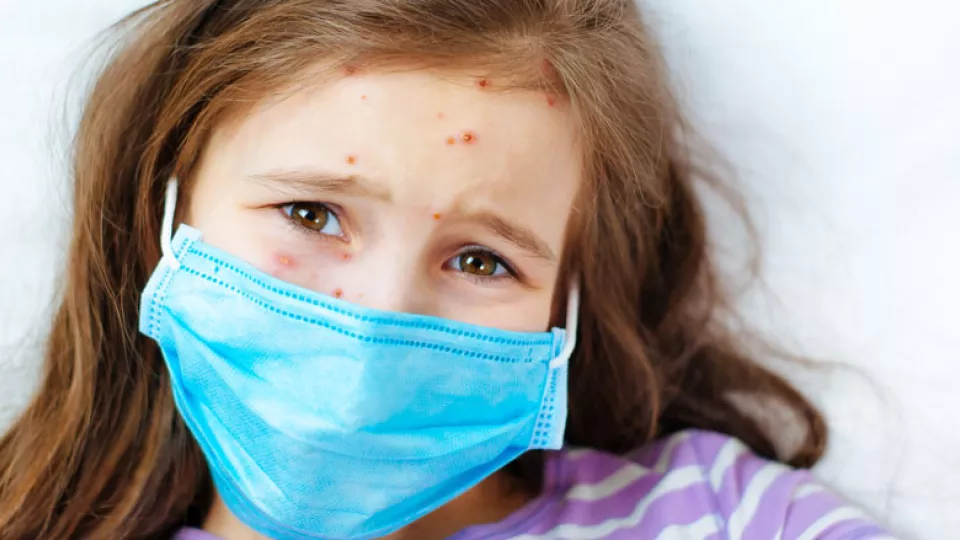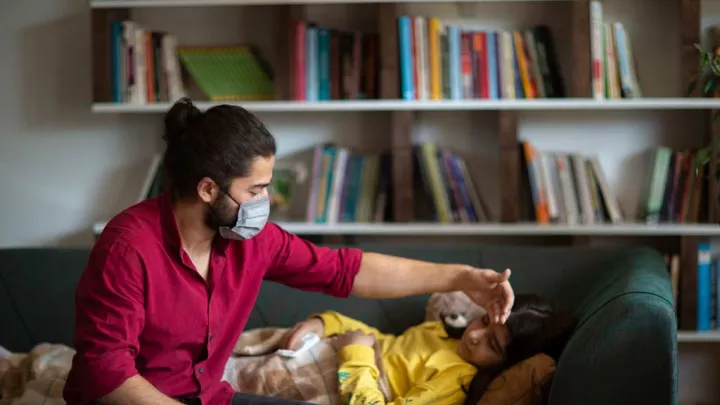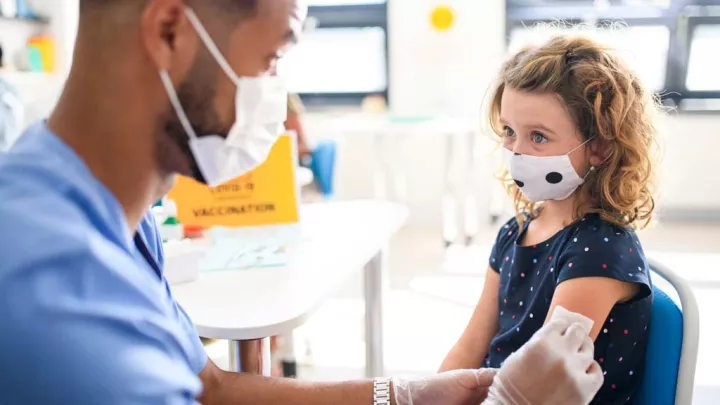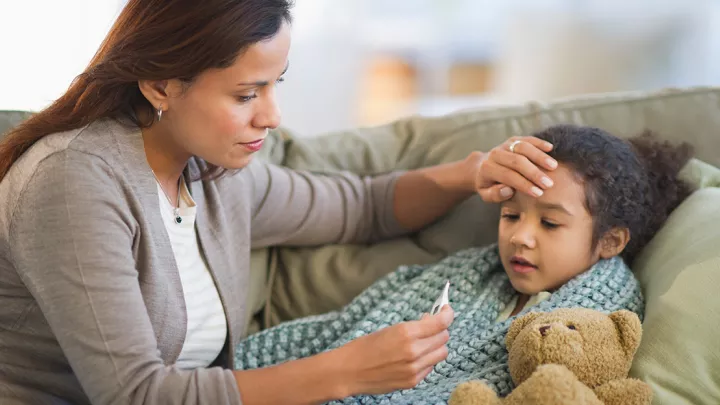
Here’s What Parents Need to Know About a Measles Outbreak
The most important thing is to have your children vaccinated if they have not already received their vaccines. The measles vaccine is safe and highly effective.
How does measles spread?
Measles is very contagious, and spreads by respiratory droplets via coughing or sneezing. If your child is near someone exposed to the virus, you can catch the illness from your child as well. This is why it spreads so quickly. If you cough, sneeze please do so into your elbow or cover your mouth.
What are the signs if my child or I have measles?
- High fever and
- bad cold symptoms
- Runny nose
- Red, watery eyes
- Rash 3-4 days after symptoms begin
If you or your child is unvaccinated and starts to have a bad cough, runny nose and red eyes, it could be the beginning of measles. A rash will almost always develop about 3-4 days after onset of illness, but before then it may just seem like a bad cold or flu. Measles is serious, so if you think your child might have it, call the child’s doctor to discuss what to do next.
If I’m not sure if my child or I have been vaccinated, is it safe to get the vaccine again?
A child should receive two doses of the vaccine (MMR) at least 1 month apart. Check with your children’s pediatrician, who should have records about their vaccinations. If you are unsure and cannot obtain records for your child or yourself, getting another measles vaccine is safe.
Can a child who has been vaccinated get measles from a child who is sick with measles?
Concern is very low if your child is up to date on their vaccines. If they have their two injections of the measles vaccine, they are well protected, even if they come in contact with an infected person.
Why are people concerned about the vaccine? Are those concerns valid?
There have been unfounded concerns about all vaccines, but in particular the measles vaccine, based on an old study that has been proven false. The study inaccurately claimed increased rates of autism by receiving the measles vaccine. This study has since been found to be invalid. The truth is the vaccine is safe.
Is getting measles that bad?
While most children recover, they can be quite sick for a week or longer. Some children, especially infants, can become very sick and can end up in a coma or hospitalized for a long time. People have even died. Other serious complications can occur, such as pneumonia, loss of brain function and encephalitis (inflammation of the brain).
I’ve heard that people are under quarantine. How do we get this outbreak under control?
The only way to get it under control is for everyone to get the vaccine. Talk to your physician and make sure you and your child are up to date on your vaccines. It is the only way to stop the spread of this illness.
Is the measles vaccine expensive?
The cost of the vaccine is covered by most insurance plans, and by programs such as Vaccines for Children. Visit the L.A. County Department of Public Health website to see if they are providing vaccinations in your area. While medical expenses can be a real concern for many families, measles isn’t like getting a cold. It is a very serious illness; you will miss work and your child will miss school for at least a week. If your child gets hospitalized, you can lose even more time and money than the vaccine would have cost.
How do we know if we are protected?
If you have received two measles vaccines, you are protected. If you have only received one or do not know your status, you can receive another immunization. Your physician can obtain a blood test to determine your status, but it is generally easier to just get immunized again if you don’t know or can’t find your records.
How is measles treated?
Your physician will run tests on your blood and urine to confirm the diagnosis, because the L.A. County Department of Public Health is tracking cases in Los Angeles.
The treatment is largely supportive care:
- Drink fluids
- Rest
- Stay home from school or work
- You may also be given a vitamin A supplement, but should not take excessive doses.
The doctor can confirm if you or your children have measles, provide treatment, and stay in contact in case complications such as pneumonia (a severe infection of the lungs), or encephalitis, (a severe inflammation of the brain) develop. They can also help prevent measles before it starts if someone you are in close contact with is already infected. Communicate with your doctor because complications may require hospitalization.
Are there any side effects from vaccines?
There is no harm caused by vaccines. Any injection can produce a low-grade fever or there may be pain at the sight of the injection; this can be remedied and managed with rest and Tylenol. You will generally develop full protection against measles about a month after the vaccine is given, but receiving the vaccine after exposure but before onset of measles can help reduce the severity.
At what age do children typically get vaccinated for measles?
The Centers for Disease Control and Prevention recommends children get their first does of the MMR vaccine (measles, mumps and rubella) at 12 to 15 months of age, and the second dose at 4 to 6 years old.
If one of my children has measles and the other one doesn’t, should I separate them?
Measles is a very contagious virus. By the time you know one of your children has measles, it is highly likely that the other child has been exposed already. If the other child is fully vaccinated (having received two measles immunizations after age 1 at least a month apart) then there is very little chance of that exposed child getting measles. If they are unvaccinated, you should see your child’s doctor immediately before symptoms start, to receive preventive treatment.
My child is immune-compromised and unable to get vaccinations. What should I do during this outbreak?
If your child has been exposed to measles, please tell your child’s doctor immediately. There are still steps that can be taken to protect your child from measles if he or she has been exposed. It involves giving the child antibodies against measles, but must be done before onset of symptoms.
My baby is too young to get the measles vaccine. What should I do?
The best way to protect your baby is to ensure that all family members, relatives and guests who visit the baby are fully immunized against measles (and other illnesses including pertussis). Heed public health warnings in your area. If baby has a high-risk exposure, contact your doctor immediately as there are still steps that can be taken to protect him or her.
We are traveling before my baby is the age doctors recommend the measles vaccine. What should I do?
We would first suggest that unless international travel is necessary, to postpone travel until children have been fully immunized. If you are traveling to Europe or another area with high levels of measles, babies can receive the measles vaccine as young as 6 months of age. This measles vaccine does not count as a routine immunization as it may not be as effective as when the child is 1 year of age or older. Therefore, your child will still need to get two further immunizations against measles.


